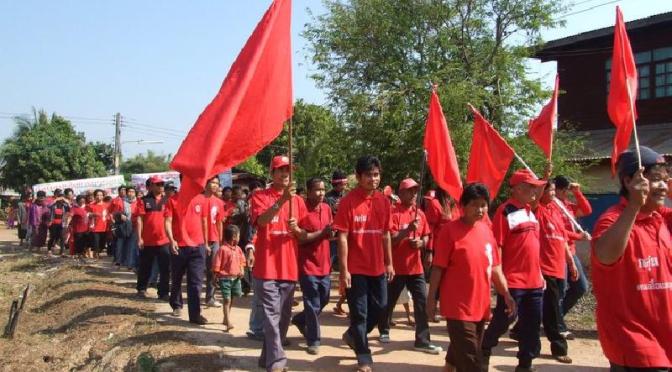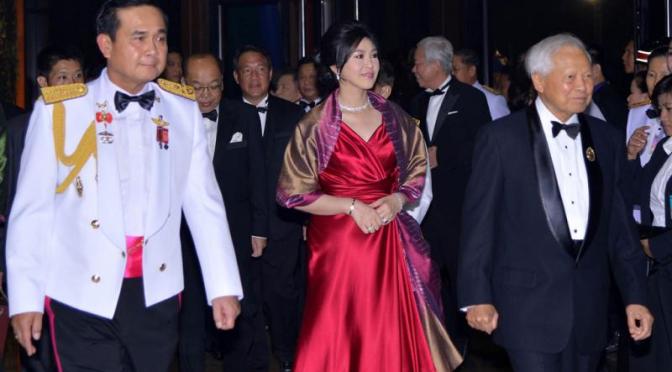Numnual Yappart
On the day that party candidates started to register with the Election Commission, Sutep’s mob blocked the registration offices and they also threatened the Election Commission members, demanding that they should postpone the upcoming Election Day. What is more, Suteps’ supporters used violence against news reporters. Their actions were simply illegal and unacceptable because they want to destroy democracy and threaten the media. But so far no one dares to force them to obey the law.
There is one organisation that I would like to mention. It is the so-called “National Human Rights Commission of Thailand”. Normally, this organisation is supposed to protect the rights of citizens. However, it does not do anything to condemn the disgraceful behaviour of Sutep’s mob which blocked the registration venues. Ironically, in the past they have actively criticised the Red Shirts and the Pua Thai government whenever they could. The National Human Rights Commission became one of the most hated institutions among people who are pro-democracy. It remained silent when the Democrats killed the Red Shirts at Rachapasong in 2010.
What is the sort of political reforms that we need in Thailand? Of course, it must not be the same things that Sutep and his gang demand. Thailand needs fundamental change. The main institutions should have elected officials; the judges, the provincial mayors, police chiefs, military chiefs etc. We need to redistribute income in effective ways, such as having a welfare state. It is a great scandal to see Thai elite names published in Forbes Magazine. These are the filthy rich who lord it over the majority of Thai people who are very poor. We need to scrap the lèse majesté law, place the media in the hands of elected bodies instead of the military and we need to punish those who committed state murders and military coups.
These kinds of reforms can only be achieved if we have elections and democracy. The Democrats, including Sutep, want false “political reforms” to reduce the democratic space. They can then make sure only their friends can have the lion’s share of power. They actively promoted the ugly myth that people who are poor are stupid and are unable to understand democracy.
You can drink our beer, but you don’t deserve the right to vote
Chitpas Bhirombhakdi, the spokesperson for Sutep’s mob and the Democrats, has created a sharp conflict with her own family “patriarch”, Santi Bhirombhakdi. The Bhirombhakdi dynasty are the owners of Sing and Leo beers, which rely heavily on sales in the North and North East. Red Shirts throughout the country have been calling for a boycott of these two brands because Chitpas thinks that villagers are too stupid to be allowed to vote. This has greatly angered Santi since he fears that sales and profits will start to plummet. Blood might be thicker than water, but beer profits are thicker than blood! 😉





